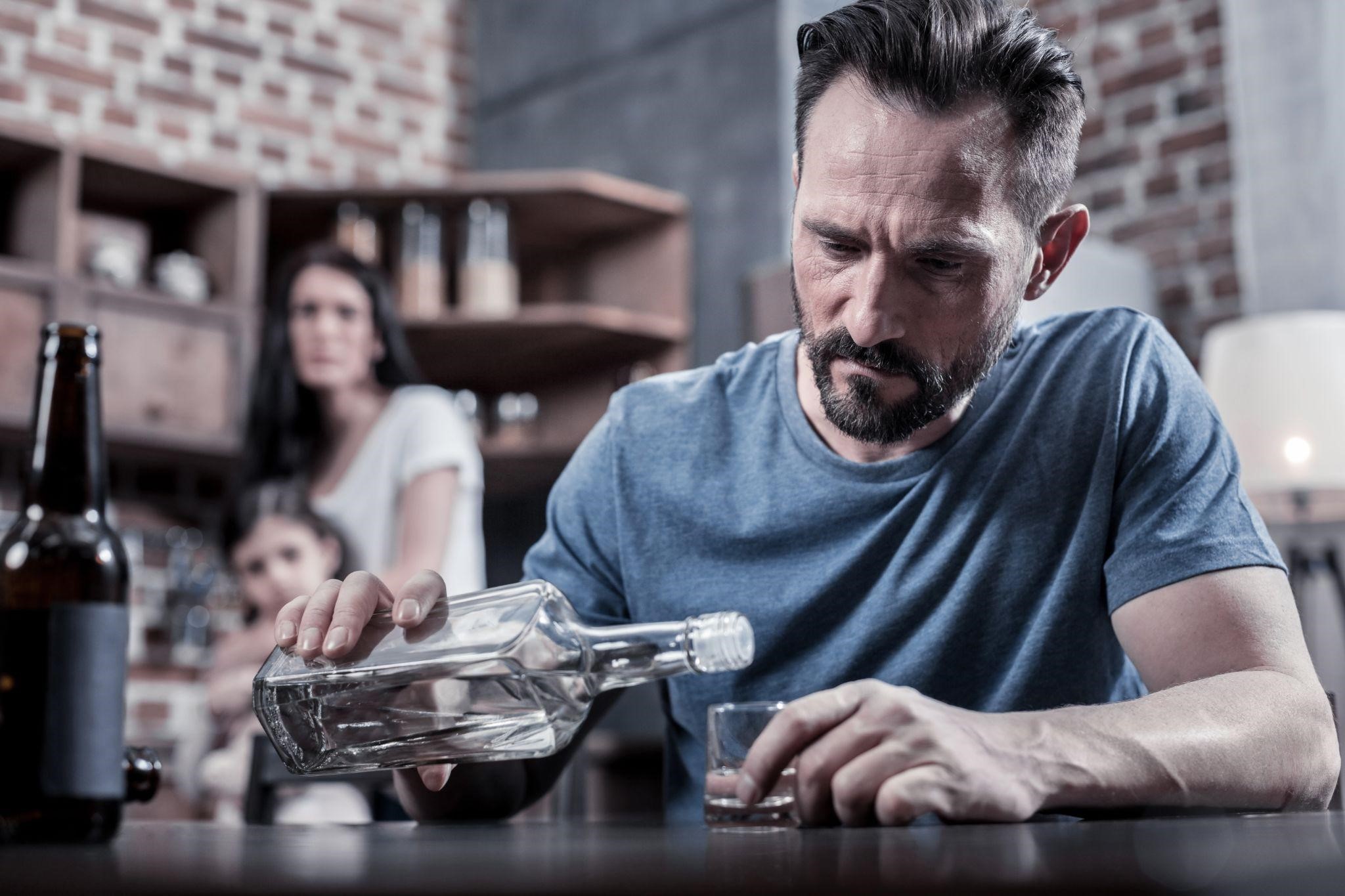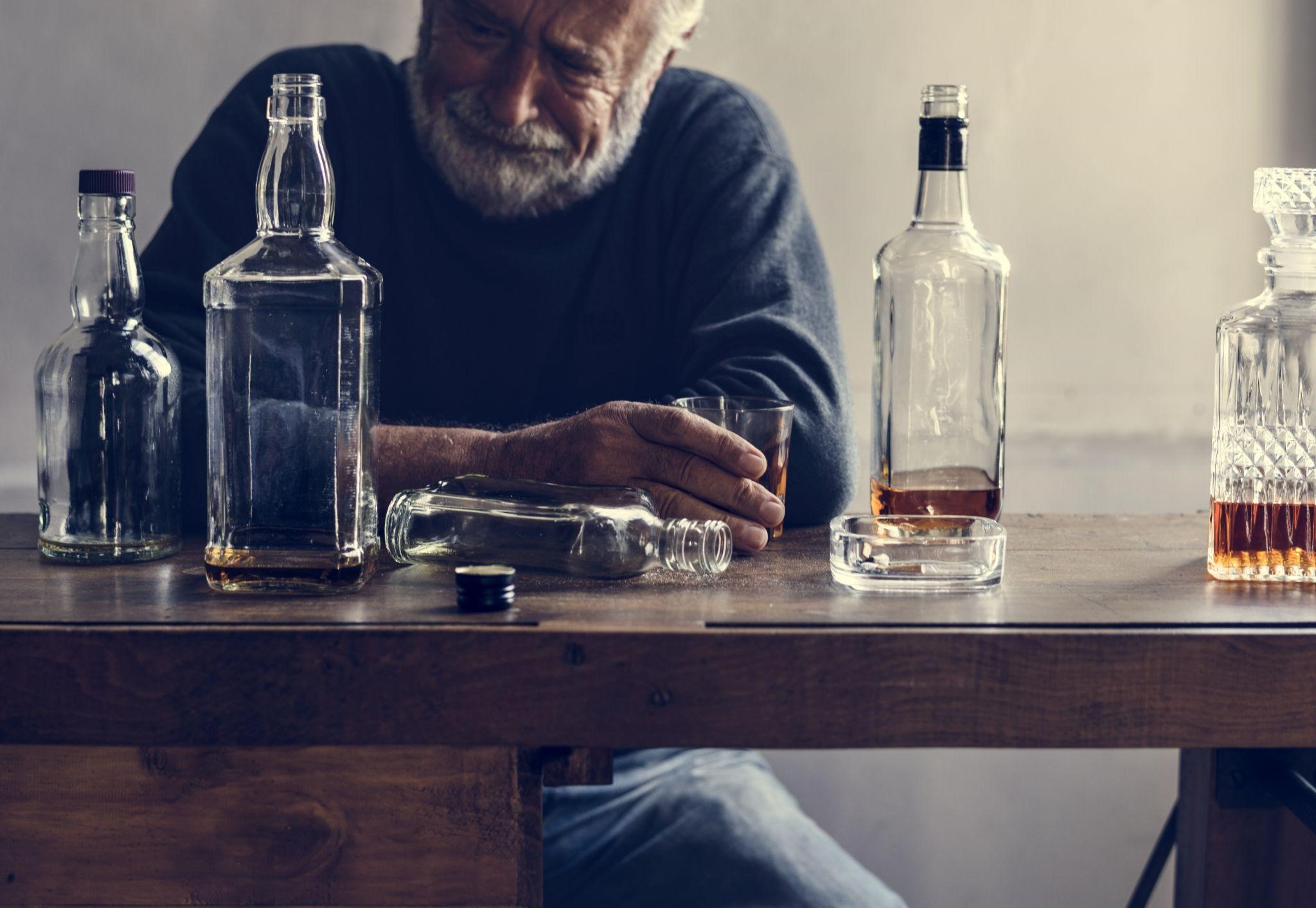Alcoholism is a serious problem, but it’s especially dangerous for men. According to the National Institute on Alcohol Abuse and Alcoholism (NIAAA), about nine million men in the United States (or about one in every 10 male adults) have an alcohol use disorder (AUD).
If you’re close to someone who abuses alcohol, it’s essential to understand the risks and dangers associated with it. Before seeking professional help from the Jackson House alcohol addiction treatment and others, you need first to understand the full scope of the problem. Here are nine things you should know about men and alcohol abuse:
1. Alcohol Abuse Is a Disease
Alcohol abuse is common among men because they’re largely unaware that it’s a disease. Since alcohol is legal, many believe it isn’t dangerous and can be consumed in moderation. However, modern science has proven that alcohol addiction affects every organ system in the body, and while you may not experience outward symptoms of alcoholism, you’re still putting yourself at great risk. According to NIAAA, about 95,000 deaths (or about one-third of all injury deaths) were believed to be alcohol-related in the U.S. each year. It’s important to know that your loved one is putting their life in danger by drinking in excess.
2. Men Are More Susceptible to It
While alcohol abuse affects both men and women, men are more susceptible to it because they metabolize alcohol differently. According to NIAAA, a man weighing 220 pounds who drinks two beers in an hour will receive a blood alcohol concentration (BAC) of about 0.08%, whereas a woman weighing 150 pounds who drinks the same amount will have a BAC of about 0.06%.
This is because women typically have less water in their bodies than men and more body fat, which means alcohol stays in their system for longer periods. In addition, the enzyme that breaks down alcohol is typically less concentrated in women.
3. The Risks Associated With Alcohol Abuse
A lot of risks are associated with alcohol abuse. First and foremost, it can lead to addiction. People who abuse alcohol are at risk for developing diseases such as:
- Alcohol Poisoning
It occurs when someone drinks so much that they lose consciousness and can stop breathing at any moment.
- Liver Disease
This involves a build-up of scar tissue in the liver, making it harder for your body to process fats, proteins, and sugars. Damage to the liver can also lead to cirrhosis of the liver.
- Alcoholic Cardiomyopathy
If someone abuses alcohol for an extended period, they might develop symptoms similar to symptoms of congestive heart failure.
- Pancreatitis
This is the swelling and irritation in the pancreas which can lead to pancreatic cancer, diabetes, or worst, even death.
Aside from the physical risks, there are also psychological risks. People who abuse alcohol are at risk for developing depression and anxiety disorders. They’re also more likely to have suicidal thoughts. Abuse can also lead to relationship problems with spouses and children.
Alcohol abuse also increases the risk for other types of accidents and injuries. Drunk drivers are a danger to themselves and the people around them, so if someone is going to drink, having a designated driver can reduce their risk of hurting others.
4. How Alcohol Abuse Affects Families
Alcohol abuse doesn’t just affect the person drinking; it affects their whole family. The effects can be wide-ranging and sometimes devastating. Some of the ways alcohol abuse can affect families include:
- Financial Problems
Drinking can lead to missed work, job loss, and financial difficulties. Someone who abuses alcohol spends a lot of money on it, and they might end up borrowing money to get more. One study found that the cost of alcohol abuse in the U.S. was over $220 billion per year, including expenses such as health care and social services, criminal justice costs, car crashes, and lost productivity.
- Mental Health Problems
Alcohol abuse can lead to depression and anxiety in the family because they feel like they’ve lost a loved one to addiction. It can also cause tension between family members because it’s hard for them to discuss their feelings about someone’s drinking without fighting or arguing.
- Relationship Problems
Someone who drinks heavily might neglect their children or spouse. They might become emotionally distant and less involved in the family. When someone abuses alcohol, they can quickly fall out of love with their partner and become someone other than who they truly are.
This can lead to a lot of pain and heartache in the family. It’s often hard for families to deal with the adverse effects of alcohol abuse, but they mustn’t give up on their loved ones; instead, they must look for ways to help them.
5. The Stigma That Comes With Alcohol Abuse
Although most people know that alcohol abuse is a serious problem, there’s still a stigma attached to it. People who abuse alcohol are often looked down upon by others and taken less seriously because of their drinking habits. There’s a common notion that abusing alcohol makes someone weak or lacks moral character.
This stigma can make it harder for people who have problems with alcohol to seek help. They might feel like they’re not good enough or that others will judge them. They might also feel ashamed of their drinking and try to keep it a secret. These are the common misconceptions about alcohol abuse:
- People Process Alcohol the Same Way
Not everyone who drinks a lot has a problem with alcohol. Some people can drink heavily without experiencing any negative effects while others might develop problems when they drink in small amounts.
- Women Need More Help Than Men
Alcohol abuse isn’t just a problem for women; it affects men as well. Men are more prone to develop health problems from alcohol abuse than women, but this doesn’t mean women aren’t at risk. Women might drink more before experiencing adverse effects, but they can still become dependent on alcohol.
- Abuse Is Easy to Spot
Someone who abuses alcohol might not look like someone who drinks heavily. Sometimes, it can be difficult to spot the signs of alcohol abuse, especially when someone is hiding their drinking. It’s not always noticeable when someone has a problem with alcohol that needs treatment.
- People with AUD Are Homeless and Uneducated
Anyone can have problems with alcohol, regardless of their age, race, or social standing. While some people who abuse alcohol are homeless or unemployed, they make up only a tiny portion of the population that abuses alcohol. Someone with an AUD is more likely to be someone you know but might not realize a problem.
- People Who Drink Are Bad
This is the biggest misconception of all. People who abuse alcohol aren’t bad; they’re just people with problems. They might have made some bad decisions while drinking, but that doesn’t mean they’re a bad person.
- Alcohol Abuse Is a Choice
People who abuse alcohol can’t control their drinking, even if they want to because alcohol changes the brain’s work and makes it harder for people to resist drinking.
Understanding these common misconceptions about alcohol abuse can help loved ones be more supportive of someone struggling with alcohol.

6. Signs That Someone Might Be Abusing Alcohol
After reading the first points, you might be wondering how to tell if someone you know is abusing alcohol. There are signs of alcohol abuse that you can watch out for. Some common signs include:
- Extreme mood swings or irritability
- Uncommon changes in behavior (e.g., becoming more secretive or withdrawn)
- Sudden changes in appearance (e.g., looking tired or unkempt, bloodshot eyes, weight loss, etc.)
- Drinking in dangerous situations
- An increased tolerance
- Preoccupation with alcohol
- Withdrawing from social activities
If you’re seeing a few of these signs in someone, it doesn’t mean they have a problem with alcohol. However, if you see many of these signs, it’s important to talk about them. They might not be aware that they have a problem, and talking about it can lead to them getting the help they need.
7. How to Make a Difference
If you see a sign or two that your loved one is abusing alcohol, it might be difficult to confront and figure out the best way to help them. It’s important not to try and force them into treatment if they’re not ready yet. Sometimes, you have to let people hit rock bottom to be willing to admit that they have a problem and get help.
There are a few things you can do to make a difference, even if the person you’re concerned about isn’t ready for treatment yet:
- Talk to Them
This is the most important thing you can do. Talking openly and honestly about alcohol abuse can help the person realize that they have a problem. There’s a good chance they already know, but it can help to have their loved ones acknowledge what’s happening.
- Don’t Enable Them
If your friend or a family member has an alcohol problem, you might be tempted to buy them alcohol or allow them to drink at your house. It only enables the addiction and makes it harder for them to realize that they should seek help.
- Don’t Try to Solve Everything
Try not to blame yourself or take on their addiction as your problem to fix. It isn’t about you, and, understandably, you think for yourself and your family. If you can’t continue caring for them in the way they need, don’t be afraid to seek out support from others who can help.
- Help Them Find Treatment
If they’re ready for treatment, help them find a good place that will give them the support they need to get better. Alcohol abuse is a disease, and it’s crucial for people who have alcohol addictions to receive medical supervision during recovery.
- Offer to Help
Be there for them as much as you can. Encourage them to seek help. If they’re not ready for treatment, help them in any way you can. It might mean taking care of them while they’re going through a tough time, driving them to and from treatment, or just being there for support.
8. Treatment Options for Alcohol Abuse and Addiction
If your loved one has already decided to seek help, there are different types of treatment they might consider:
- Psychological Support
Professional counseling is one of the most important things someone can do when trying to overcome alcohol addiction. There are many different types of counseling like cognitive-behavioral therapy or family counseling.
- Inpatient Rehab
This is a residential program where people live at the rehab center for the duration of their treatment. It’s a good option for people who need around-the-clock supervision and support.
- Outpatient Rehab
This involves going to a rehab center for a few hours each day while living at home. Sometimes, people like this option because it allows them to continue their normal activities and see friends and family during treatment.
- Self-Help
There are many different self-help groups that alcoholics can attend after they leave rehab. These include Alcoholics Anonymous (AA) and SMART Recovery. Sometimes, these people meet in person; other times, members support one another through online chat rooms and forums.
9. How to Help Someone Overcome Alcohol Addiction
Once the person you’re worried about is ready for treatment, there are some useful things you can do to help them overcome their addiction:
- Always Be Supportive
It’s important to be supportive and encouraging. Try not to be judgmental or critical even if your loved ones slip up along the way.
- Remind Them of Their Goals
Remind your loved ones why they decided to seek help in the first place and encourage them to work hard for what they want.
- Be Open About Your Experiences
If you’re a recovering addict yourself or you know somebody else who already has, share your stories with them. It can be helpful and inspiring.
- Stay Positive
It’s important to stay positive, even when things are tough. It’ll help your loved one stay motivated during treatment.
10. The Stages of Recovery From Alcohol Addiction
Finally, it’s important to remember that recovery from alcohol addiction is a long journey that doesn’t happen overnight. It’s a battle against a dangerous and powerful addiction, so alcoholics need to have support from loved ones throughout the process of overcoming their addiction. People who recover from alcohol addiction go through several stages:
- Detox
Getting through the withdrawal period is one of the biggest challenges recovering addicts face. It can cause many unpleasant physical and mental side effects.
- Relapse
It’s normal for people recovering from alcohol addiction to relapse, and it doesn’t mean they’re weak or flawed in any way. Reaching out to others can help them get back on track after a slip-up.
- Rehabilitation
Once the withdrawal has passed, the person can start thinking about their future. Rehab gives them a safe space to get better and learn to live without alcohol.
- Recovery
This is where people build a life for themselves that isn’t centered around drinking, which might include going back to school or getting a job, making new friends, or doing things they couldn’t do when they’re addicted.
Final Thoughts
It’s necessary to remember that alcoholism is a disease, not a character flaw. People who have it need help to recover. With the right support from loved ones, alcoholics can overcome their addiction and live happy, healthy lives, so learn how to be supportive, positive, and understanding throughout the entire process. It’s during this darkest and lowest time that your loved one needs you the most. In this way, you can help them get the treatment they need and start on the road to recovery.
Lastly, if your loved one or someone you know is struggling with alcohol addiction, please reach out for help. Many resources are available, and you don’t have to face this challenge alone.







